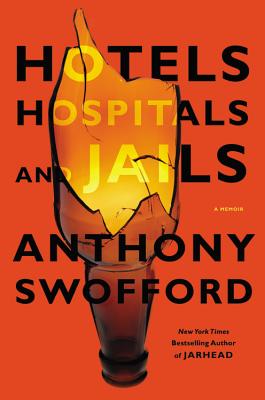 Anthony Swofford served in a U.S. Marine Corps Surveillance and Target Acquisition/Scout-Sniper platoon during the Gulf War. After the war, he was educated at American River College; the University of California, Davis; and the University of Iowa Writers' Workshop. He has taught at the University of Iowa and Lewis and Clark College. His fiction and nonfiction have appeared in The New York Times, Harper's, Men's Journal, The Iowa Review, and other publications. A Michener-Copernicus Fellowship recipient, he lives in New York.
Anthony Swofford served in a U.S. Marine Corps Surveillance and Target Acquisition/Scout-Sniper platoon during the Gulf War. After the war, he was educated at American River College; the University of California, Davis; and the University of Iowa Writers' Workshop. He has taught at the University of Iowa and Lewis and Clark College. His fiction and nonfiction have appeared in The New York Times, Harper's, Men's Journal, The Iowa Review, and other publications. A Michener-Copernicus Fellowship recipient, he lives in New York.
“To make a short story long.” This is how my father begins most of his tales. When I was young he often told us kids about the Goat Man. Goat Man stories would include themes of love and cowardice and success and failure. The Goat Man was an itinerant who skulked around western Georgia. The Goat Man owned a team of ten goats that pulled the Goat man’s wagon. The Goat Man and his children wore goatskin bodysuits, complete with goat head hoods. The Goat Man was a tinkerer. He sharpened knives. He repaired kitchen pots. My father told us stories of hitching a ride with the Goat Man. Sometimes my grandfather let the Goat Man stay on their property for weeks at a time. The Goat Man had once been a prosperous businessman in Iowa and he’d lost everything, first to the stock market crash and then the bottle. He had his goats and a few of his children and nothing else.
I didn’t believe the story of the Goat Man but it scared me to death. I didn’t know what a parable was but I recognized that I was supposed to learn a lesson from this tale: if you are not wise with your career and private business you will be a homeless Goat Man.
I forgot about the Goat Man for two or so decades and my father hadn’t brought him up and then a few years back I took an RV trip with my father from Georgia west toward California. We were kicking it around Atlanta a few days prior to heading out on the trip, and one day my dad asked me to drive him over to the West Georgia Museum in Tallapoosa. Near the end of our tour of the museum --- after the dinosaur and moonshine galleries --- there it was, a full blown Goat Man exhibit with photos and testaments, and a New York Times obituary, in case I doubted the veracity of the story.
My father, hobbled by emphysema, was about twenty feet behind me. I soaked up the story of the Goat Man.
My father made his way to the exhibit, and he brightened, “Hey, hey, here he is, the Goat Man!”
“I never believed those stories about the Goat Man. They scared me but I didn’t believe they were true,” I said.
“Ah, Tone, would I make something up like the Goat Man?”
“I think you might,” I said.
“Well I mighta but I didn’t. Did I ever tell you about the time the Goat Man lived there on Burnt Hickory with us for a while?”
“You did, many times.”
“Well, to make a short story long . . . .”
I have a different storytelling style than my father…I like to make long stories short, I favor an economy of language. My father’s stories are long and convoluted and often lack any temporal or spatial sense while I believe that clarity is king in prose storytelling. But I understand his impulse to tell stories, to share, to commune with others through language. I’m often asked where my writing talent came from, and I’ve never known how to answer the question, but perhaps now I can: it came from the Goat Man.


